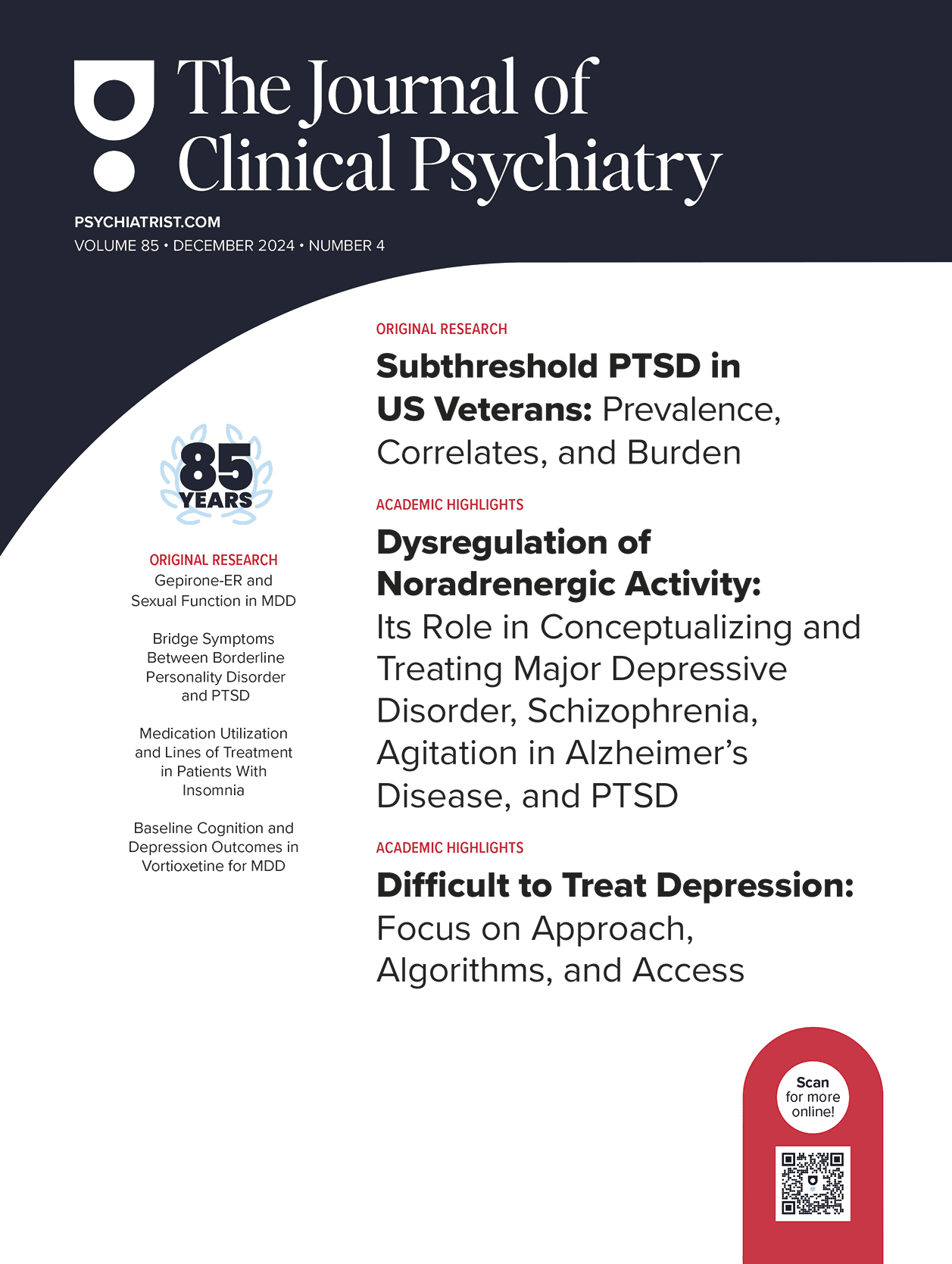Objective: To comparatively analyze the efficacy, acceptability, and tolerability of various augmentation agents in adult patients with treatment-resistant depression.
Data Sources: An electronic literature search of PubMed, EMBASE, the Cochrane Library, Web of Science, EBSCO, PsycINFO, EAGLE, and NTIS for trials published up to December 2013 was conducted. Several clinical trial registry agencies and US Food and Drug Administration reports were also reviewed. No language, publication date, or publication status restrictions were imposed.
Study Selection: Randomized controlled trials comparing 11 augmentation agents (aripiprazole, bupropion, buspirone, lamotrigine, lithium, methylphenidate, olanzapine, pindolol, quetiapine, risperidone, and thyroid hormone) with each other and with placebo for adult treatment-resistant depression were included.
Data Extraction: The proportion of patients who responded to treatment was defined as primary efficacy, and the proportion of all-cause discontinuation and side-effects discontinuation were respectively defined as acceptability and tolerability, which were assessed with odds ratios (ORs) and a Bayesian random-effects model with 95% credible intervals (CrIs).
Results: A total of 48 trials consisting of 6,654 participants were eligible. In terms of the primary efficacy, quetiapine (OR = 1.92; 95% CrI, 1.39-3.13), aripiprazole (OR = 1.85; 95% CrI, 1.27-2.27), thyroid hormone (OR = 1.84; 95% CrI, 1.06-3.56), and lithium (OR = 1.56; 95% CrI, 1.05-2.55) were significantly more effective than placebo. Sensitivity analyses indicated that efficacy estimates for aripiprazole and quetiapine were more robust than those for thyroid hormone and lithium. In terms of acceptability, no significant difference was found between active agents and placebo. In terms of tolerability, compared to placebo, quetiapine (OR = 3.85; 95% CrI, 1.92-8.33), olanzapine (OR = 3.36; 95% CrI, 1.60-8.61), aripiprazole (OR = 2.51; 95% CrI, 1.11-7.69), and lithium (OR = 2.30; 95% CrI, 1.04-6.03) were significantly less well tolerated.
Conclusions: Quetiapine and aripiprazole appear to be the most robust evidence-based options for augmentation therapy in patients with treatment-resistant depression, but clinicians should interpret these findings cautiously in light of the evidence of potential treatment-related side effects.
Continue Reading...
Did you know members enjoy unlimited free PDF downloads as part of their subscription? Subscribe today for instant access to this article and our entire library in your preferred format. Alternatively, you can purchase the PDF of this article individually.
Please sign in or purchase this PDF for $40.00.
Save
Cite
Already a member? Login


